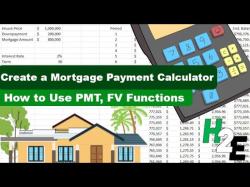Should you pay off your mortgage or invest the cash?
Deciding whether to pay off your mortgage or invest your extra cash is a significant financial choice that depends on your individual circumstances, goals, and risk tolerance. Here are some factors to consider when making this decision:
1. Interest Rate on the Mortgage:
- Compare the interest rate on your mortgage to the potential returns on your investments. If your mortgage has a relatively low interest rate (e.g., 3-4%) and you expect to earn a higher rate of return on your investments (historically, the stock market has averaged around 7-8% per year), it may make sense to invest the extra cash instead of paying off the mortgage.
2. Tax Considerations:
- Mortgage interest may be tax-deductible, especially if you itemize deductions on your tax return. Consider how the mortgage interest deduction affects your overall tax situation. It may make sense to continue paying mortgage interest if it provides a tax benefit.
3. Investment Time Horizon:
- Consider your investment time horizon and financial goals. If you have a long time horizon (e.g., saving for retirement), investments in the stock market or other assets may have the potential for significant long-term growth. On the other hand, paying off your mortgage is a guaranteed return on your money.
4. Risk Tolerance:
- Assess your risk tolerance. Investing in the stock market comes with market fluctuations and risks, whereas paying off your mortgage provides a guaranteed reduction in debt. Your comfort level with risk can influence your decision.
5. Diversification:
- Diversifying your financial strategy can be a prudent approach. You don't have to choose one option exclusively. You can allocate some extra cash to paying off your mortgage and some to investments to balance your financial goals.
6. Financial Security:
- Consider your financial security and peace of mind. Some individuals prefer the psychological benefit of being debt-free, which can reduce financial stress and provide a sense of security.
7. Other Debt and Financial Goals:
- Evaluate your overall financial situation. If you have high-interest debt (e.g., credit card debt), it's generally advisable to prioritize paying off that debt before aggressively paying down a low-interest mortgage. Additionally, consider other financial goals like building an emergency fund or saving for education expenses.
8. Consult a Financial Advisor:
- It can be helpful to consult with a financial advisor who can assess your unique circumstances and provide personalized advice based on your goals, income, and expenses.
Ultimately, the decision to pay off your mortgage or invest your extra cash is a complex one that depends on various factors. It's important to carefully weigh the pros and cons of each option in light of your individual financial situation and objectives. There is no one-size-fits-all answer, so take the time to evaluate your priorities and consult with professionals if needed to make an informed decision.
Pay Off Your Mortgage or Invest the Cash? Making a Financial Decision
Whether to pay off your mortgage or invest the cash is a complex financial decision that depends on a variety of factors, including your individual financial situation, risk tolerance, and investment goals.
Here are some of the pros and cons of each option:
Paying off your mortgage:
- Pros:
- You will no longer have a monthly mortgage payment, which can free up money for other expenses or savings goals.
- You will build equity in your home more quickly.
- You will be debt-free, which can give you peace of mind.
- Cons:
- You will lose the tax benefits of deducting mortgage interest.
- You will be tying up a large amount of money in your home, which may limit your flexibility in the future.
- You may miss out on the potential for higher returns by investing the money instead.
Investing the cash:
- Pros:
- You have the potential to earn higher returns on your investment than you would by paying down your mortgage.
- You can invest the money in a variety of different assets, such as stocks, bonds, and real estate.
- You can maintain your flexibility by withdrawing the money if needed in the future.
- Cons:
- You are taking on investment risk. There is no guarantee that your investment will be successful.
- You will not have the tax benefits of deducting mortgage interest.
- You will need to manage your investment portfolio carefully.
Ultimately, the best decision for you will depend on your individual circumstances. If you are unsure of what to do, it is a good idea to talk to a financial advisor.
Here are some factors to consider when making your decision:
- Your interest rate: If you have a low interest rate on your mortgage, it may make more sense to invest the money instead.
- Your risk tolerance: If you have a high risk tolerance, you may be more comfortable investing the money. However, if you have a low risk tolerance, you may prefer to pay off your mortgage to reduce your debt.
- Your investment goals: If you have short-term investment goals, such as saving for a down payment on a house, it may make more sense to pay off your mortgage. However, if you have long-term investment goals, such as saving for retirement, it may make more sense to invest the money.
- Your personal preferences: Some people simply prefer to be debt-free, while others are more comfortable investing their money.
It is also important to note that there is no one-size-fits-all answer to this question. The best decision for you will depend on your individual circumstances. If you are unsure of what to do, it is a good idea to talk to a financial advisor.












